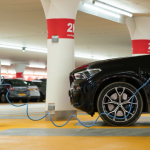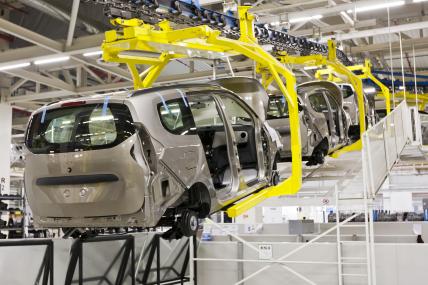Our economy – and our citizens – rely upon long-distance road transport. This dependence leads us to a crossroads: do we continue to focus on fuel, or do we respond with a sustainable, soon-to-be-scalable electric alternative?
Around the world, electric vehicles continue to rise in popularity and necessity. In the face of this growth, we must consider a market most commonly associated with fuel consumption: the long-haul truck. Naturally, this raises questions around who will service these vehicles and how we will support their charging needs.
Keith Brandis of Volvo Group asserts that his team plans on rolling out a comprehensive response to the demand for long-haul EVs, already accounting for technicians and the necessary electrical infrastructure.
And with states like California establishing increasingly stringent constraints on vehicle emissions, the trucking industry has been encouraged to make the move to zero-emissions technologies.
Though initially more expensive than trucks with diesel or combustion engines, electric vehicles release less air pollution and pay for themselves through lower maintenance and fueling costs. And as batteries continue to evolve and grow more common, so too will higher-density batteries that allow trucks to travel further without recharging.
But aside from the monetary and environmental benefits, why are EVs relevant to the trucking industry? Many studies have shown the inextricable links between the effects of climate change on human health, a connection which is represented in the many health risks incurred in the trucking profession.
A Breath of Fresh Air
We have known for years the harmful effects of greenhouse gasses on human health, particularly those produced by car engines. As research continues to develop, preliminary studies have shown that local air pollutant emissions released from diesel engines can increase the occurrence of lung cancer, asthma and cardiovascular disease.
A journal published by the Public Library of Science asserts that driving a long-haul truck can come with inherent occupational hazards, with many in the role facing poor psychological, physiological and sleep health outcomes.
High-risk exposures and poor air quality contribute to these health problems, as truck drivers are exposed daily to elevated levels of diesel soot, otherwise known as black carbon.
And according to an article published by the NRDC, large amounts of diesel exhaust can accumulate inside truck cabs from the driver’s own engine, surrounding trucks and crowded port environments. Inhaling these pollutants for dozens of hours at a time has serious consequences – including lung cancer, heart disease and premature death.
Though newer models of diesel long-haul trucks release fewer pollutants, modern tailpipe pollution control cannot capture all tailpipe emissions.
Electrifying the Future
If we require the trucking industry to maintain our economic activity, we must recognize and respond to the conditions we expect truck drivers to work in. As the transporters of our late-night shopping hauls, essential grocery items and more, it is critical to care for those drivers supporting our way of life.
Prioritizing truck drivers’ health can and should include eliminating the amount of toxic air contaminants they breathe in during the workday.
The use of renewable energy is already tied to widespread health and environmental benefits. In adopting the use of high-density batteries and continuing to develop more efficient zero-emissions engines, we can drastically reduce the harmful pollutants in our ozone. Groups such as Volvo and states like California are paving the way forward, reiterating that long-haul EVs are not a fad – they’re the future.






